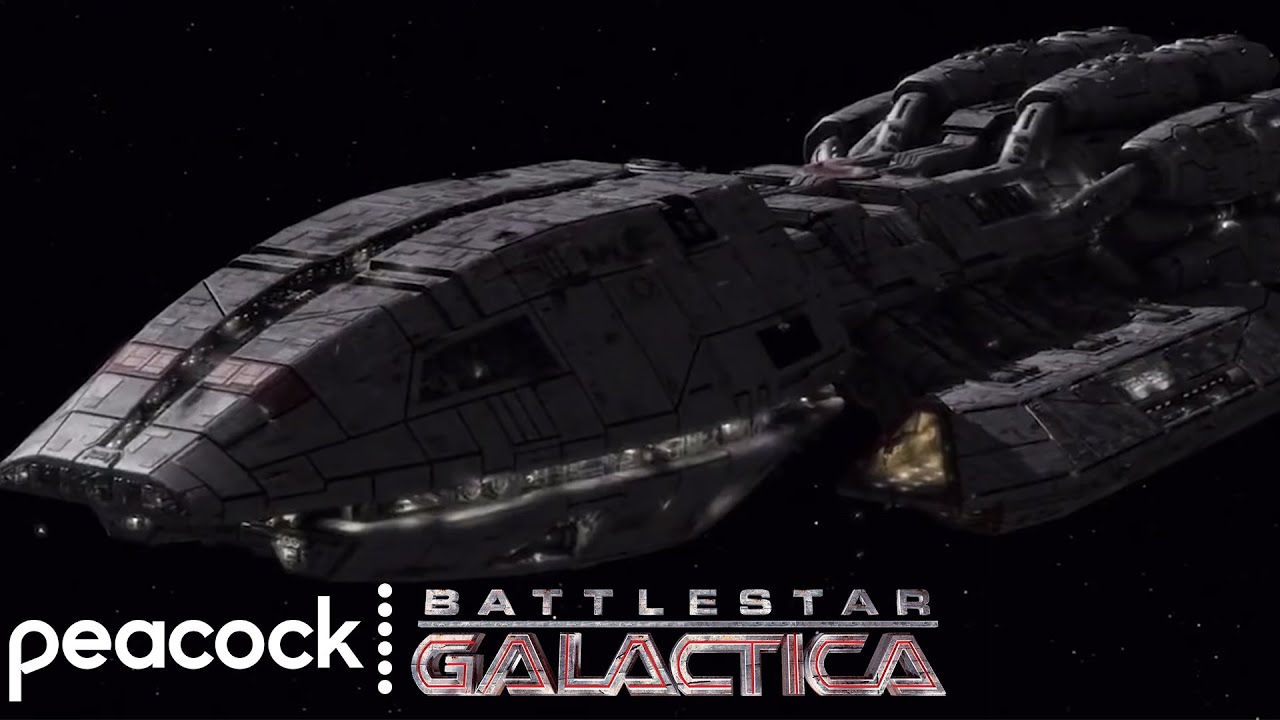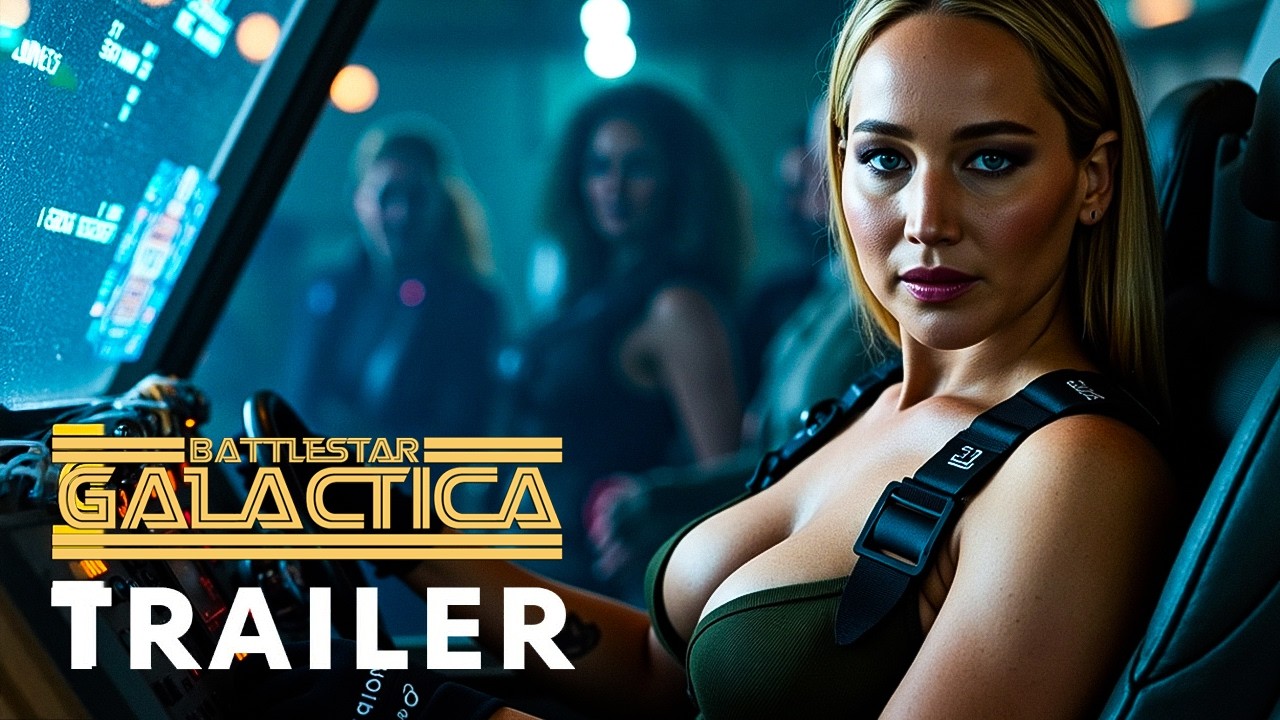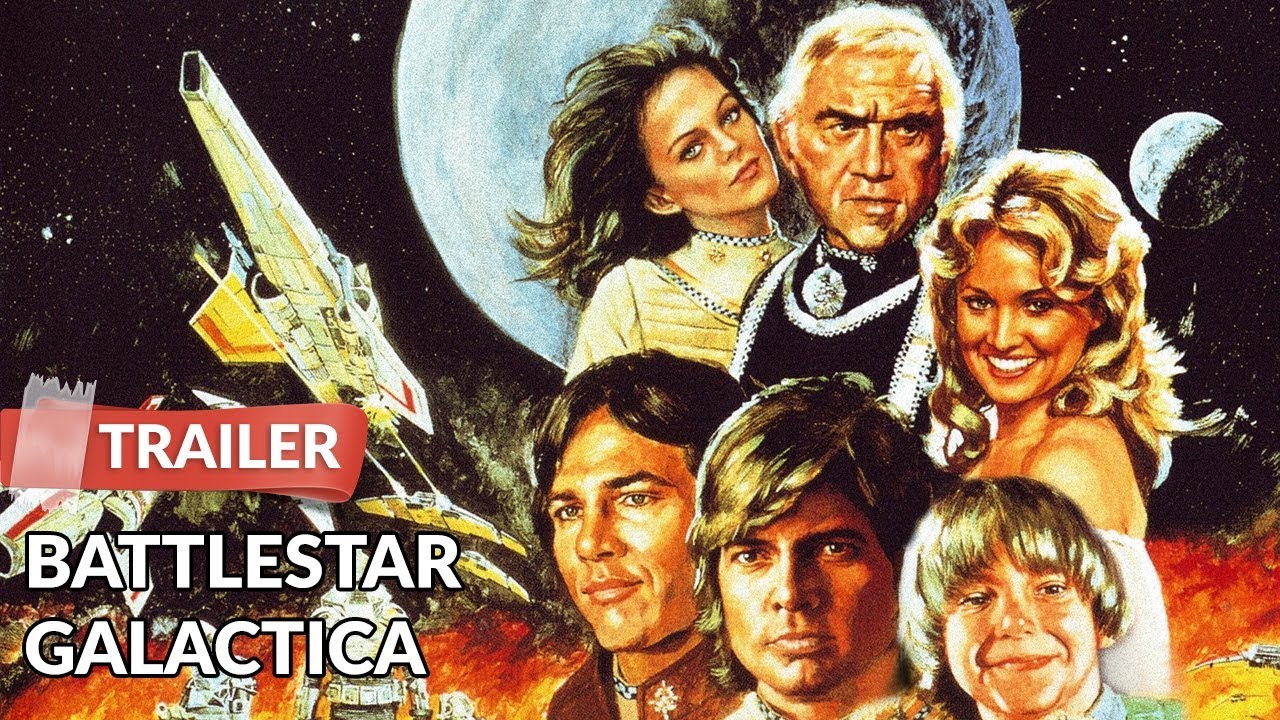The Enduring Legacy of Battlestar Galactica
When it comes to unforgettable sci-fi television, Battlestar Galactica stands as a towering figure, redefining what we think a space opera can be. Launched in 2004, this reimagined series took the original 1978 show, gave it a major facelift, and propelled it into the hearts of millions. Its intricate storytelling, compelling characters, and moral complexities resonate deeply, making it a staple for fans who enjoy pondering life’s big questions alongside their movies.
From the very first episode, Battlestar Galactica dives into themes that hit close to home: survival, identity, and the technological consequences looming over humanity. Amidst the chaos of space, viewers find reflections of our own world’s struggles—like geological conflicts and climate crises—making the series feel all too relevant today. With an ensemble cast led by Katee Sackhoff as Starbuck and Edward James Olmos as Commander William Adama, the series showcases not only spectacular acting but also rich narratives that intertwine personal and collective experiences.
What keeps Battlestar Galactica fresh even in 2026? The show’s ability to challenge viewers’ perceptions while provoking thought about current affairs ensures its place in the sci-fi pantheon. This article will explore seven major themes that still resonate and their cultural significance that echoes beyond the stars.
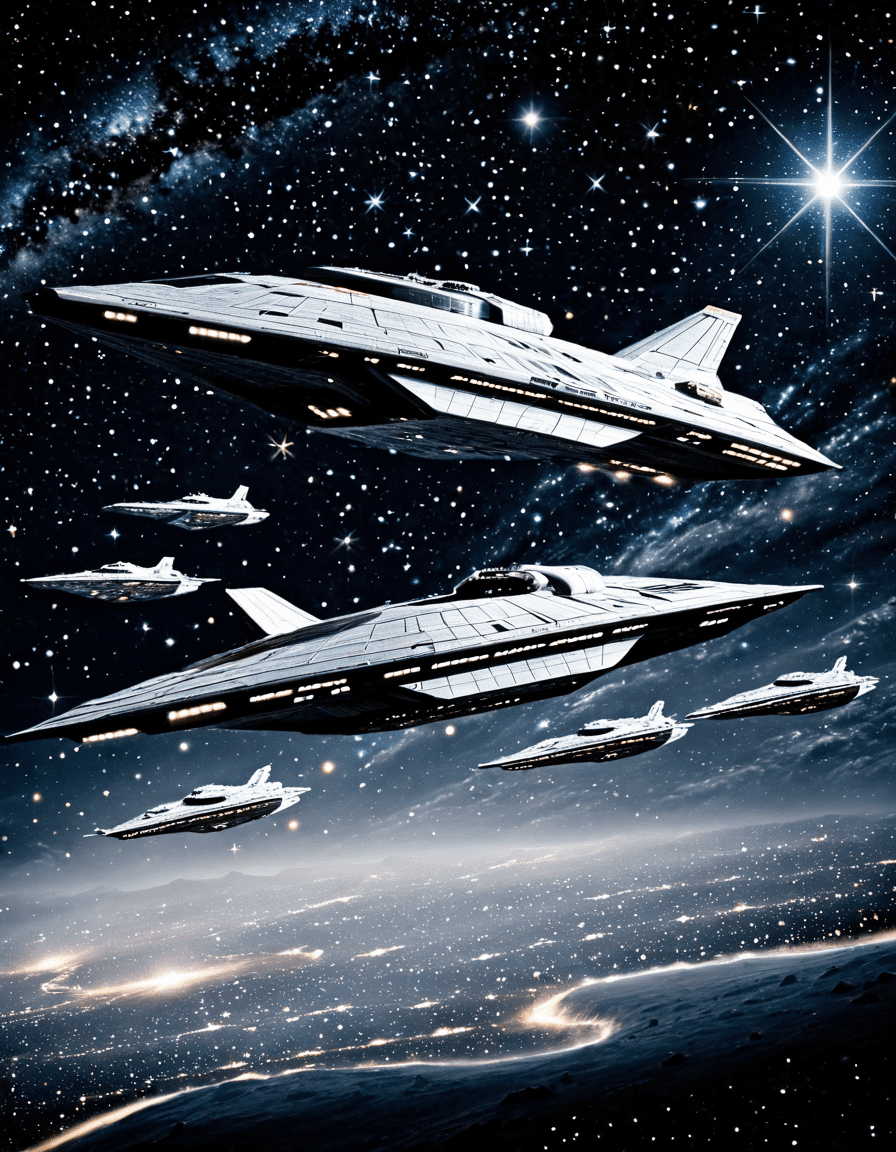
Top 7 Themes in Battlestar Galactica That Resonate Today
Battlestar Galactica launches viewers into a relentless battle for humanity’s survival, ultimately showcasing the lengths to which people go when facing extinction. The harrowing experiences of the Galactica crew echo today’s global challenges, from climate change to geopolitical strife. The Gemenon Exodus, for instance, draws stark parallels with refugee crises around the world.
One of Battlestar Galactica’s trailblazing themes is how it blurs the lines between man and machine. The sentient Cylons, who develop human-like traits, pose a challenging question: what does it really mean to be human? This dilemma mirrors modern debates about artificial intelligence and ethics. As AI technologies like OpenAI and Google Assistant further evolve, Battlestar Galactica maintains a crucial relevance in exploring human relationships with technology.
The political landscape in Battlestar Galactica mirrors the tumultuous state of global politics. President Laura Roslin’s calculated decisions illustrate how leaders often walk a fine line between ethics and necessity. This portrayal resonates with viewers who observe their own leaders’ struggles in today’s messy power dynamics, where moral dilemmas still loom large.
The show doesn’t shy away from exploring various beliefs and ideologies. With characters deeply invested in faith, Battlestar Galactica taps into the timeless philosophical debate between destiny and free will. This theme encourages viewers to reflect upon their beliefs and choices, much like the moral quandaries we face in our own lives.
War leaves indelible scars, both physically and psychologically. Battlestar Galactica immerses viewers in the veteran struggles of characters grappling with PTSD and moral injury. The diligent portrayal of these complex issues creates an essential conversation around the toll of war that remains relevant in today’s climate, where discussions about veterans’ rights and mental health are at the forefront.
Under dire circumstances, relationships are put to the ultimate test. The bonds between characters like Starbuck and Apollo are both a source of strength and vulnerability. As families are ripped apart and loyalties shift, Battlestar Galactica offers an exploration of how love and loyalty can evolve into betrayal, simulating the complexities faced in our own social interactions.
Despite its often dark themes, Battlestar Galactica is ultimately a story of hope. The crew’s resilience shines through in dire situations. This powerful message resonates deeply in an age where societal challenges abound, reminding viewers that the human spirit can endure even the toughest of trials. Whether through candlelit corridors aboard the Galactica or the unity forged amidst chaos, the series speaks to our fundamental need for connection and hope.
The Adaptation and Expansion of Battlestar Galactica
The Battlestar Galactica universe has grown beyond the show itself, branching out into various formats that keep the tale alive. From novels and comic books to the web series Battlestar Galactica: Blood & Chrome, fans have endless opportunities to immerse themselves in this rich world. Each adaptation adds layers, revealing hidden nuances and enriching the complex narrative that fans adore.
Creators like Ronald D. Moore have turned Battlestar Galactica into something more than just a TV show. Their use of handheld cameras and raw, gritty visuals allows audiences to feel the emotional depths of the characters and situations they face. The innovative storytelling techniques elevate the series to a cinematic level, ensuring that it resonates long after the credits roll.
As Battlestar Galactica embraces a myriad of mediums, its impact ripples through pop culture. The storytelling innovations inspire a diverse array of shows and films, shaping future creators looking to explore deep narratives. The series has opened doors, letting audiences traverse this expansive sci-fi universe.
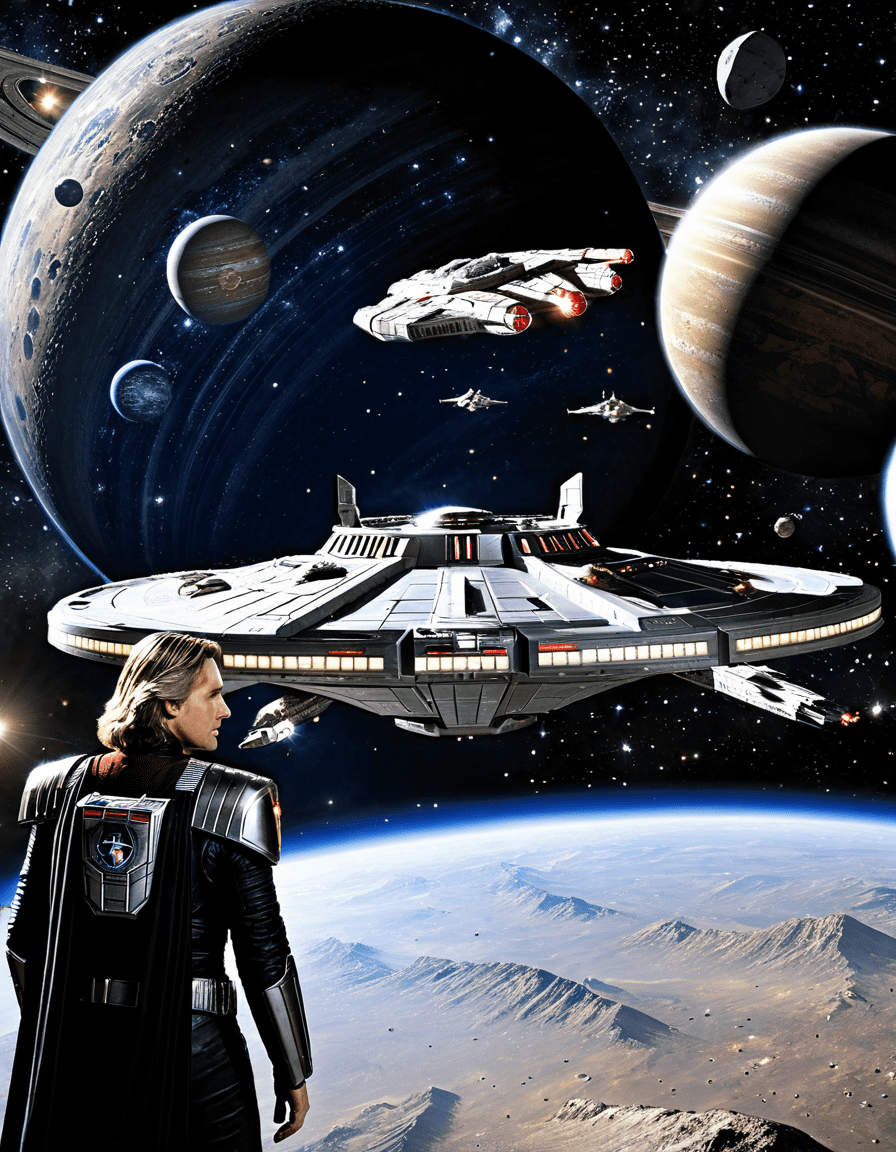
Cultural Impact and Relevance in 2026
Fast forward to 2026, and it’s clear: Battlestar Galactica continues to shape conversations in popular culture. The show’s themes echo through various contemporary works, from video games like Mass Effect that tackle AI ethics, to films exploring technology and humanity’s identity. The narratives intertwine, creating a tapestry that reflects our evolving relationship with technology.
This relevance is magnified by a devoted fanbase engaging in discussions across social media platforms such as Reddit and dedicated fan conventions. The camaraderie of fans sharing insights about Battlestar Galactica reflects a collective desire to unravel the mysteries of existence amid today’s chaotic reality. The show serves as a mirror, encouraging a deeper understanding of our world amid uncertainty.
As we look back at Battlestar Galactica’s legacy, we see how it evokes profound questions while fostering connections between people. The intricate storytelling, compelling themes, and unforgettable characters remind us that humanity’s quest for survival, community, and hope remains timeless. Ultimately, Battlestar Galactica lights the way through the darkness of space—an enduring beacon amid the stars.
For fans intrigued by this epic journey, the exploration continues on platforms like Lps or as we dive into character studies of actors like Scott Eastwood, grappling with identity in our intricate, navigating cosmos. So grab a seat on your sofa and explore this magical universe—there’s deep space waiting to be traveled!
Battlestar Galactica: Fun Trivia and Interesting Facts
Behind the Scenes Secrets
Did you know that the original Battlestar Galactica premiered in 1978 and was so popular that it sparked a dedicated fanbase that still thrives today? It even inspired other TV shows, like the revival in 2004, which brought in a new generation of viewers. Speaking of generations, Battlestar Galactica tackled themes of survival and identity that resonate even with today’s younger audiences, which is fascinating considering how Generation Z often engages with complex narratives. The series’ ability to blend science fiction with soap opera elements made it a genre-defining experience.
Iconic Characters and Influences
A fun fact is that several characters drew on classic archetypes and received inspiration from unexpected sources. For example, Richard Hatch, who played Captain Apollo, was influenced by spy roles like the character from Secret agent Man. Meanwhile, the character of Starbuck, originally portrayed by Dirk Benedict, underwent a fascinating gender swap in the remake, with the character played by Katee Sackhoff, showing how flexible storytelling can be over time. This evolution reminds us of how pop culture continually shifts and reinvents itself, similar to trends seen in video games like Doki Doki literature club, which also challenge player perceptions.
Cultural Impact and Legacy
Battlestar Galactica didn’t just entertain; it left an indelible mark on television and even inspired a number of cross-cultural references. For instance, the show’s exploration of human versus machine echoes the way we interact with technology today. Much like the evolution of reality shows and celebrity culture, where figures like Jeopardy host Ken Jennings shape the narrative, Battlestar Galactica was a game changer. Moreover, like the pursuit of athletes such as Rickie Fowler, characters in the series often strive for personal greatness amidst overwhelming odds. The dynamic storytelling continues to resonate, proving that survival and humanity’s quest yield rich narratives, much like selecting the perfect dish at the Bamboo Bistro. Ultimately, Battlestar Galactica embodies the timeless human experience, cementing its status as a sci-fi legend.
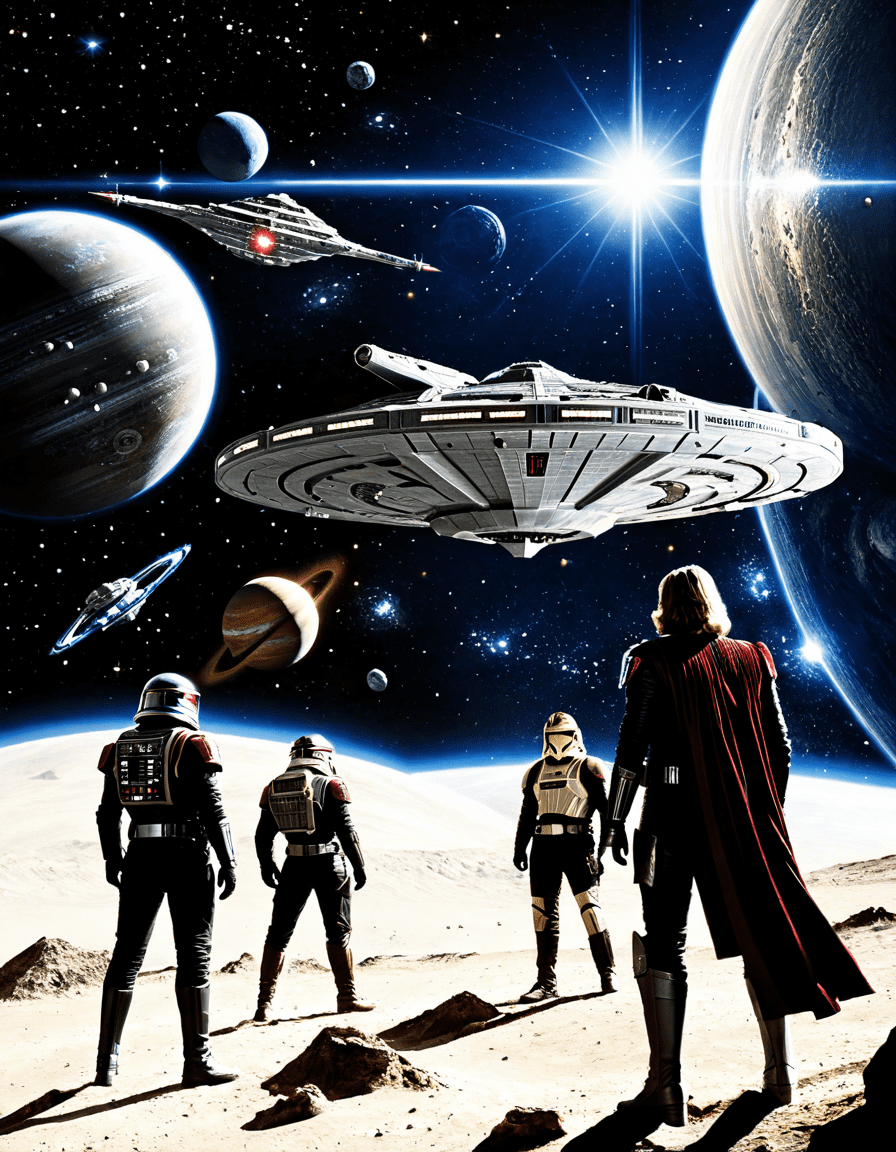
What was the famous line in Battlestar Galactica?
The famous line in Battlestar Galactica is “So say we all.” It’s become iconic for its emotional weight and how it captures the unity of the fleet.
Is Battlestar Galactica 2004 a remake or continuation?
Battlestar Galactica from 2004 is a reimagining, not just a straight-up remake. It takes the original’s themes and characters but tells a new and more complex story.
What is the significance of the 33 minutes in Battlestar Galactica?
The significance of the 33 minutes refers to a time loop where the fleet gets attacked every 33 minutes, creating constant tension and urgency among the crew and characters.
How many seasons of Battlestar Galactica 1978 are there?
The original Battlestar Galactica from 1978 had one season, with a total of 24 episodes before it was canceled.
What is the F word in Battlestar Galactica?
In Battlestar Galactica, the “F word” often refers to “Frak,” which is a substitute for a curse word used throughout the series, adding a unique touch to its dialogue.
What does “roll the hard six” mean?
“Roll the hard six” is a phrase that means to take a risk and hope for a lucky outcome, often used to talk about making important decisions or bets.
Who is the best actor in Battlestar Galactica?
Many fans consider Edward James Olmos, who played Commander Adama, to be the best actor in Battlestar Galactica due to his powerful performance and strong presence.
Is there a spin-off prequel to Battlestar Galactica?
Yes, there’s a spin-off prequel called “Caprica,” which explores the origins of the Cylons and the events leading up to Battlestar Galactica.
Are there Cylons on Galactica?
Yes, there are Cylons on Galactica. They are the primary antagonists of the series, posing a constant threat to the human race throughout the storyline.
What is the 75 in Battlestar Galactica?
The “75” in Battlestar Galactica refers to the number of years since the end of the First Cylon War when the series starts and serves as a backdrop for the ongoing conflict.
Why did Starbuck destroy the Olympic carrier?
Starbuck destroyed the Olympic carrier to prevent it from being a possible Cylon trap, prioritizing the safety of the fleet over the loss of life on that ship.
Why do they say Galactica actual?
“Galactica actual” is used by pilots to refer to the actual Battlestar Galactica itself, making it clear they’re communicating directly with the ship’s command.
Is Galactica 1980 better than the original?
Galactica 1980 is generally not seen as better than the original; many fans found it less compelling and diverged from the tone of the original series.
Why was Dirk Benedict shunned by Hollywood?
Dirk Benedict faced challenges in Hollywood partly due to his persona and typecasting from his roles, along with changing industry dynamics that didn’t favor him as much later on.
Did the original Battlestar Galactica have an ending?
The original Battlestar Galactica didn’t have a proper ending since it was canceled, leaving many plot threads unresolved for fans.
What was Gaius Baltar’s best quote?
Gaius Baltar’s best quote might be “I am what I am,” capturing his complexity and moral ambiguity throughout the series.
What is the red line in Battlestar Galactica?
The “red line” in Battlestar Galactica is a term used to designate a critical boundary that should not be crossed, often in reference to military or ethical limits.
What is the opening dialogue of Battlestar Galactica?
The opening dialogue of Battlestar Galactica starts with a prologue that sets up the universe, focusing on the war between humans and Cylons, highlighting the stakes involved.
What was the last line of Battlestar Galactica?
The last line of Battlestar Galactica is “It has all happened before, and it will all happen again,” which ties back to the show’s themes of cyclical history and fate.

